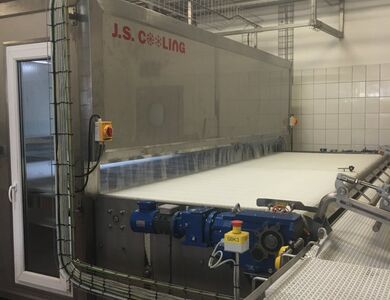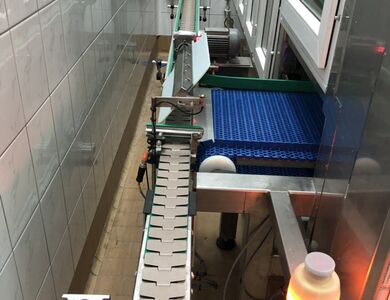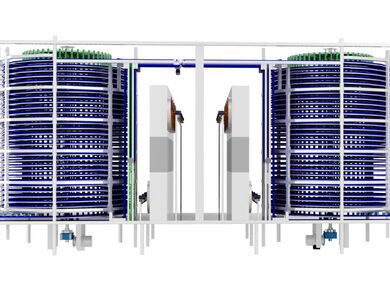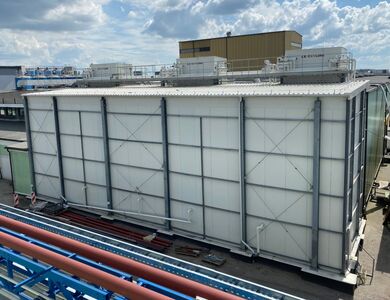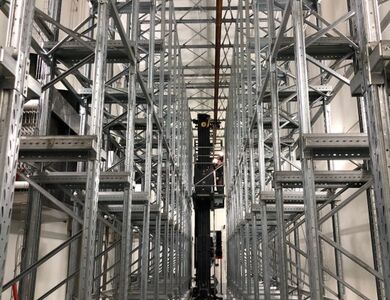Cooling tunnels are mainly used to increase cooling efficiency (reduce the amount of cooling needed) and to save time on cooling. Depending on the stage of production, our company offers various technological solutions.

We offer the possibility of chilling a single product immediately after wrapping – in this case we use spiral tunnels and pass-through tunnels with modular belts. Once the product is packed on a pallet, consider using pallet tunnels with pallet conveyors or multi-storey tunnels with pallet stackers.
Pass-through tunnel for small bulk packages
Pass-through-tunnels are best suited where there is ample space to locate them, the goods are cooled in bulk packaging, e.g. in bags/crates, or there is a need to cool the goods by gradually regulating the temperature for individual sections.
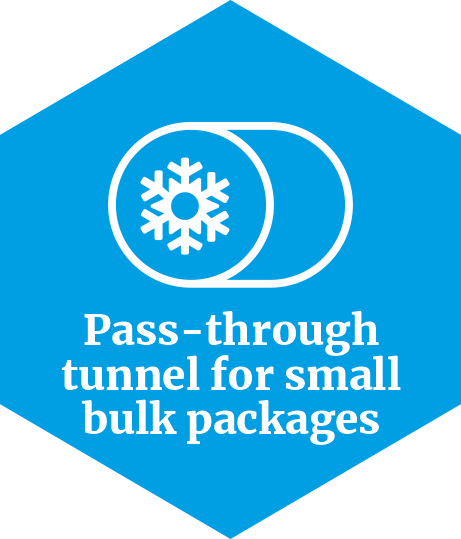 |
|
Spiral tunnel for single product
Spiral tunnels are best suited for applications where there is not much space available, the goods to be cooled are in individual batches/packages, the products to be cooled have a repeatable size/shape and there is a need to quickly cool the goods.
 |
|
Pallet tunnel with pallet conveyors
Pallet cooling tunnels with pallet conveyors are best suited for goods with a cooling time of less than 1.5 hours. It is also possible to install this type of tunnel in low areas without limiting the cooling of high pallets.
 |
|
Pallet tunnel with stacker crane
Cooling tunnels with pallet stacker crane are designed for slow-cooling goods, as they have a larger capacity than tunnels with conveyors. Despite this, they occupy a similar amount of space thanks to the use of several floors. Pallets are fed and removed automatically by means of pallet conveyors. Each pallet space on the rack has its own dedicated fan, which accelerates the cooling level. The movement of pallets in the tunnel is managed by the MFS system. When a pallet enters the tunnel, it identifies it by assigning a number to it so that it can then be placed on the free pallet space. In order to cool the goods evenly, the pallets are swapped in the middle of the cooling process by changing the blowing side.
 |
|
Files to download
- Catalog JS.Cooling download files
See how we build cooling tunnels
